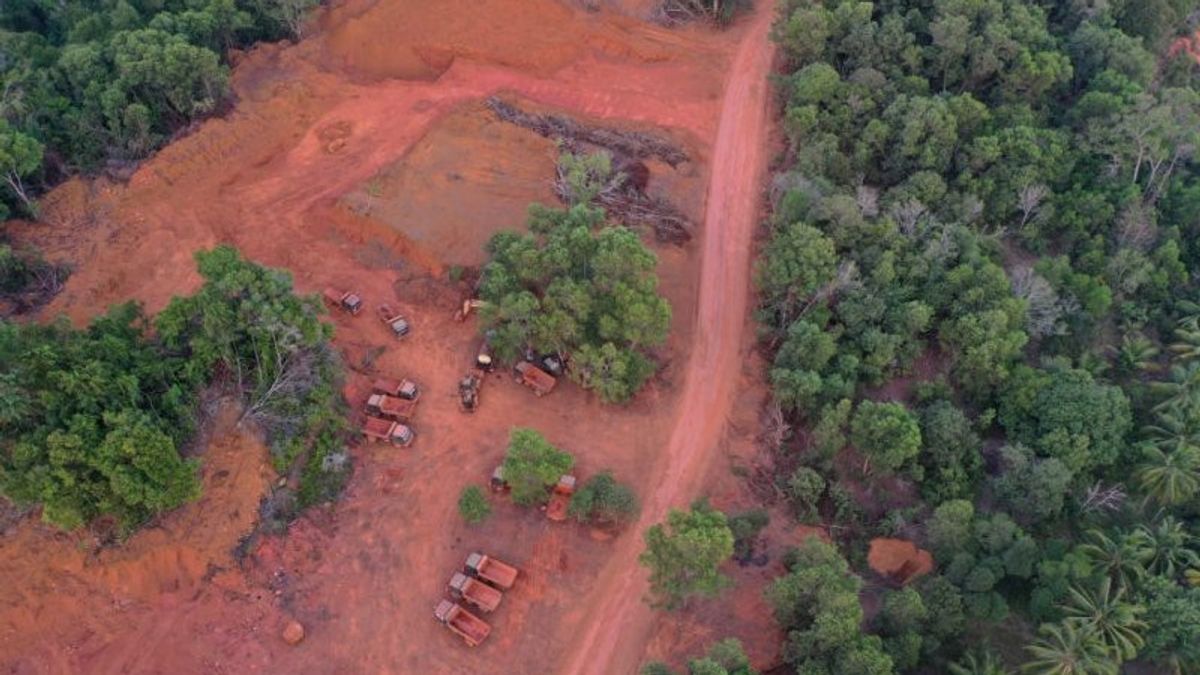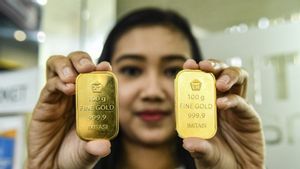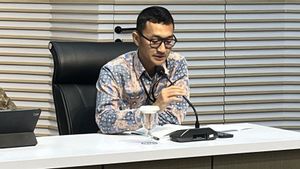JAKARTA - Energy Economy Observer Universitas Gadjah Mada (UGM) Fahmy Karyani praised President Jokowi's bold move to stop the ban on the export of bauxite ore starting June 2023.
According to Fahmy, Law Number 4 of 2009 concerning Mines, Minerals and Coal has mandated to prohibit exports of mining and mineral products without being lost in the country no later than 2024.
"However, there is a strong opposition from mining companies, especially from Freeport, which is accompanied by threats to be reported to the WTO. The government of President SBY has postponed the export ban. Only now does President Jokowi dare to ban exports of nickel ore and bauxite," he said in a statement quoted by Antara, Saturday, December 24.
Fahmy said that President Jokowi's goal to ban the export of bauxite was to increase added value, new jobs, and Indonesia's economic growth.
Apart from these three objectives, the export ban is actually to optimize the proceeds of natural wealth as much as possible for the prosperity of the people, according to the mandate of Article 33 of the 1945 Constitution.
"Shortly, the ban on bauxite exports will reduce export revenue to IDR 21 trillion per year. However, in the long term, in line with the increase in added value, exports of downstream products and derivative products of bauxite, will increase state revenues by around IDR 62 trillion per year," he said.
Fahmy admits that it is not easy to get additional income of that magnitude through the ban on bauxite exports. He considered that there were still various challenges and opposition.
One of these challenges is that the smelter capacity is still very limited to downstreaming all the results of bauxite ore.
However, the ban on the export of bauxite will force bauxite entrepreneurs to build smelters, both by each company, as well as by a consortium of companies and joint ventures with smelter investors.
"For this reason, the government must provide fiscal incentives in the form of tax holidays, tax allowances, and free import taxes for smelter equipment," he added.
Meanwhile, opposition from the World Trade Organization (WTO) regarding the ban on nickel ore is also considered to have to be fought even though in the end it will lose.
Fahmy said that at least the trial process for the WTO lawsuit until the final decision would take about four years. So, during the four years, according to him, the ban on bauxite exports must still be carried out to produce a bauxite industry ecosystem from bauxite seeds and downstream products to derivative products, in the form of alumina as raw material for the machine and semiconductor industry.
"The derivative product will provide an added value greater than the export of bauxite ore. So it is necessary to 'forward not to be afraid to increase state revenue'," said Fahmy.
The English, Chinese, Japanese, Arabic, and French versions are automatically generated by the AI. So there may still be inaccuracies in translating, please always see Indonesian as our main language. (system supported by DigitalSiber.id)










